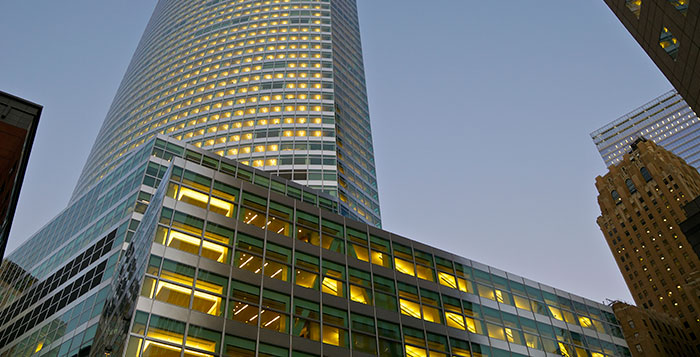We have a lot to thank Costa for – they have taught the British public about good coffee – Tess Flower, owner of the Village Shop and Café in Upper Dicker, East Sussex, told the trade earlier this year.
Similarly, independent convenience retailers may like the following line from a report by a team of Goldman Sachs financial experts, led by Rob Joyce and published last week: “The supermarkets trained their customers to trust private label and taught them that convenience stores could offer a service comparable to that of larger supermarkets.”
The report is called Totally Addicted to Space: Overcapacity in UK Grocery Still Needs to be Addressed.
It is not a snappy title, but the message to the big four grocers is stark: they need to shut one in five stores to become competitive. A price war will not work and is unlikely to be sustained.
Unlike the sort of analysis that comes out of the Institute of Grocery Distribution, the Goldman Sachs analysis is financially based. They find that the supermarkets’ return on capital has fallen and they will not be able to get back to the world-beating profits they had as recently as three years ago.
The supermarkets got into this mess partly because they had a brilliant business model that worked year-in, year-out for as long as anyone could remember. They assumed they were in a four-business shoot-out to the end of time, and this locked them into a space race to squeeze the other three out of the market.
At the same time they had to protect profits, and this means they raised prices to pay for the new space and cut staff costs.
What they did not see was that their higher prices opened the way for Aldi and Lidl, with their unstoppable value model based on a tighter range and frugal capital investment, to grow and grow.
The Goldman Sachs estimate says that if the supermarkets don’t start closing stores they will lose sales at 2.9% a year until 2020. For every £100 they get today that will be £86 in 2020.
This contrasts with growth in the convenience sector to £121, in online to £175, and in discounters to £206. But don’t open the champagne.
Reflect on what Goldman Sachs observes: “The UK grocers have been excellent retailers. They pioneered innovative, high quality private label, developed capabilities to offer high quality service across multiple formats, including home delivery, and cultivated a favourable market structure.”
A key driver of the success of the independent channel has been from wholesaler-led improvements to the offer of symbol groups. The wholesalers have taken inspiration from the world, but their world view is distorted by their proximity to the supermarkets and knowledge of the much better margins prevailing there.
Moving forward, independent retailers have a choice to imitate the discounters or the supermarkets. What matters most is the quality of your execution of your chosen strategy. For the next six years you have to assume there will be low growth and low food price inflation. Proximity retail is a great buzz word, but you can expect competition from new entrants such as Amazon.
The good news from the Goldman Sachs report is a belief that the grocers won’t take the dramatic action to cut space or prices, and this is likely to provide the wholesale channel with enough growth to thrive in partnership with entrepreneurial independent retailers.






Comments
This article doesn't have any comments yet, be the first!